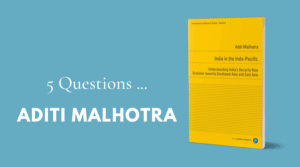According to the field theory of the French sociologist Pierre Bourdieu, our world is composed of different social fields. These fields are, for example, the field of everyday practice, the artistic, the political, and the academic field (cf. Bourdieu 2001, p. 41f.). And each of these fields consists of certain ideas, practices and agreements — valid rules, to which the actors of the respective field adhere — and which constitute the field as such (Bourdieu 1993, p. 108).
Bourdieu describes a field as a microcosm that functions relatively autonomously and is characterised by certain closedness (cf. Bourdieu 2001, p. 41f.). For as long as the actors do not master the field-inherent rules of the game, they are denied access to it. Actors need sufficient field-specific capital to be able to take up a position in the respective field. The composition of this capital varies from field to field — it cannot be easily accumulated outside of it (cf. Bourdieu 1987, p. 194ff.).
Taking a closer look at the academic field, scholars accumulate capital — apart from participating in conferences and acquiring funding — primarily through publications. And that’s where we have come full circle: After all, you can only publish successfully (and in relevant publications) if you know how to write a convincing abstract, how a journal article should be structured, which journals and which questions are relevant — in other words, if you know the rules of the game in your field.
Young academics in particular have mostly limited knowledge of what is needed to be successful in their respective academic field. The required cultural capital is rarely imparted to them in their seminars, and if it is, it is mainly implicit. In many cases, however, those who want to work in the academic field simply lack the necessary social capital – for example, connections to experienced academics, who are part of the game and would take notice of their ideas or texts.
In 2007, the 1st Student Sociology Congress in Halle (Saale)/Germany took place and sociology students and graduates founded the association soziologiemagazin e.V. By creating its own journal, the association aimed not only to increase visibility of the work of young academics, but to offer the opportunity to gain first experiences in academic writing and publishing. Since 2009, the association has published the “Soziologiemagazin” in open access, first annually and since 2011 twice a year. (In 2013, the Verlag Barbara Budrich took the journal into its portfolio, e.g., providing an ISSN and distributing a print version.) Young researchers can submit texts to topic-based calls and, if they pass the review process, publish them (cf. Schulz/Erz/Riedl 2019, p. 95).
Over the years further activities have been initiated. The website “Soziologieblog” features reviews, conference reports and blog posts by young academics. The editorial team has published a total of seven special issues of the journal so far, including cooperations with Humboldt-Universität zu Berlin and the Goethe University Frankfurt. Since 2020, a series of working papers has been released, and in August 2020, the association published its first anthology. Most recently, in 2021, members of the editorial team organised a panel for young researchers at the joint congress of the German Sociological Association (DGS) and the Austrian Sociological Association (ÖGS). Another panel will take place at the “Soziologiekongress” in 2022.
These activities, and especially the journal, create a learning field (cf. Rudolfi & Krüger 2018, p. 64f.): The editorial team consists of students and graduates of the social sciences who contribute to it on a voluntary basis. They check, select, and edit the texts and guide the authors through the publication process: they provide feedback, give explanations, and advice on content and writing. And during this process, they also learn how publishing works themselves. In addition, an advisory board of experienced academics accompanies the review process and helps evaluate the texts in the context of current academic discourse (cf. Schulz/Erz/Riedl 2019, p. 95ff.).
The soziologiemagazin e.V. doesn’t aim to change the rules of the academic game. It does, however, strive to make a decisive contribution to opening up the boundaries of the field (cf. Mund 2021, p. 2f.) by creating opportunities to practise academic publishing and to familiarise oneself with the rules that are indispensable. And above all, by making knowledge explicit; editorial board members make the review process as transparent as possible, questions are allowed, and mutual learning is part of the process (cf. Schulz/Erz/Riedl 2019, p. 95).
Finally, in the sense of a Public Sociology, it is important to the editors to promote contributions that are comprehensible beyond sociological jargon (cf. Schwertel&Schulz 2020, p. 18f.). The team’s social media activities certainly also promote interest in sociological topics among people outside the bubble. The network that soziologiemagazin e.V. provides for its authors and members again encourages them to ask their own questions – contributing to the fact, that different perspectives become visible at last.
References
Bourdieu, P. (1987). Die feinen Unterschiede. Kritik der gesellschaftlichen Urteilskraft. Frankfurt am Main: Suhrkamp.
Bourdieu, P. (1993). Soziologische Fragen. Frankfurt am Main: Suhrkamp.
Bourdieu, P. (2001). Das politische Feld. Zur Kritik der politischen Vernunft. Konstanz: UVK.
Mund, C. (2021). Vorwort. 6. Sonderheft des Soziologiemagazins, 1-3. https://doi.org/10.5281/zenodo.5347947
Rudolfi, M., Krüger, M. (2018). Geschichte des Soziologiemagazins. Entstehung und Perspektiven 2007 bis 2017, Soziologiemagazin, Jg. 11/1, 64–69. https://doi.org/10.3224/soz.v11i1.07
Schulz, A., Erz, H., Riedl, V. (2019). How to make a Soziologiemagazin. Soziologiemagazin 2-2019, 94-101. https://doi.org/10.3224/soz.v12i1.07
Schwertel, T., Schulz, A. (2020). Wissenschaftliches Publizieren. Publizieren statt archivieren. Exposé – Zeitschrift für wissenschaftliches Schreiben und Publizieren, Jg. 2/20, 18–21.
About Cathrin Mund

Cathrin joined soziologiemagazin e.V. in 2019 and has been vice chair since 2021. At Verlag Barbara Budrich she works in the areas of international marketing and sales. Cathrin studied linguistics, cultural studies and sociology at the universities of Kiel, Gothenburg and Bayreuth and is a lecturer at the University of Bayreuth. Cathrin likes to excite others about linguistic and sociological questions, keeping it with Hannah Arendt’s “Denken ohne Geländer”.
How do journal editors work?
How do journal editors select contributions, which contributions have a chance of being published? And how do I increase my chances of getting my text published? In our upcoming Publishing Insights on 17 August, the editors of the Soziologiemagazin give an insight into their work. Book now via our shop: shop.budrich.de/produkt/life-as-a-journal-editor
(Free of charge for all authors of Verlag Barbara Budrich, the advisory board and current participants of our writing clubs!)
Image: pexels.com / Kevin Malik

